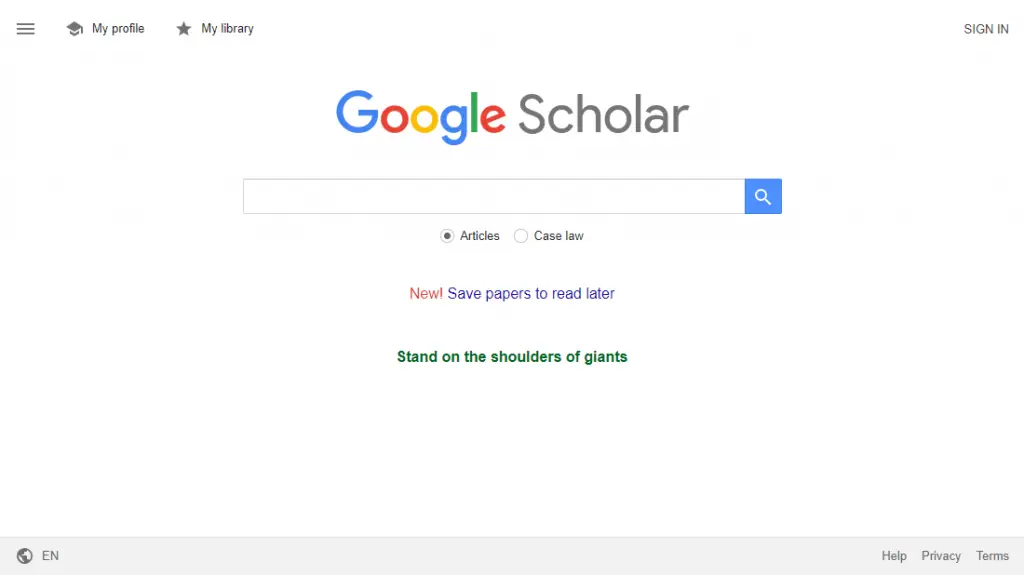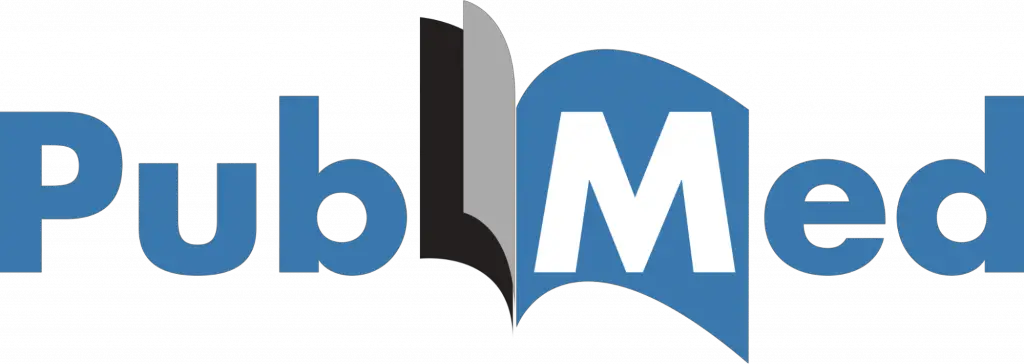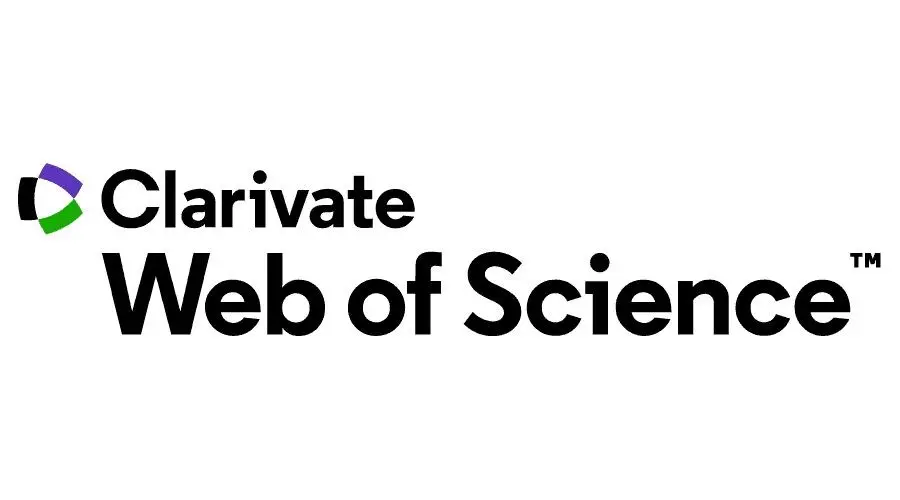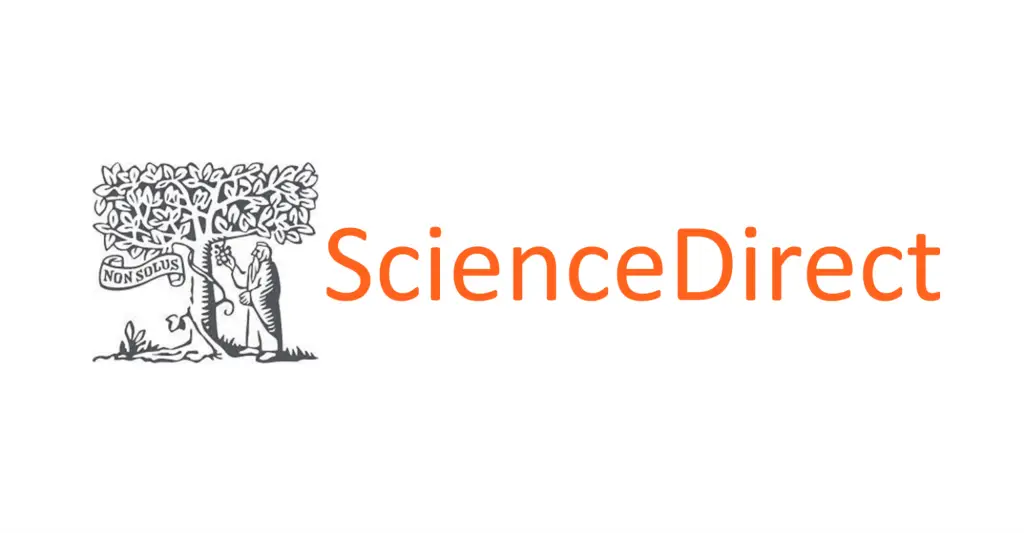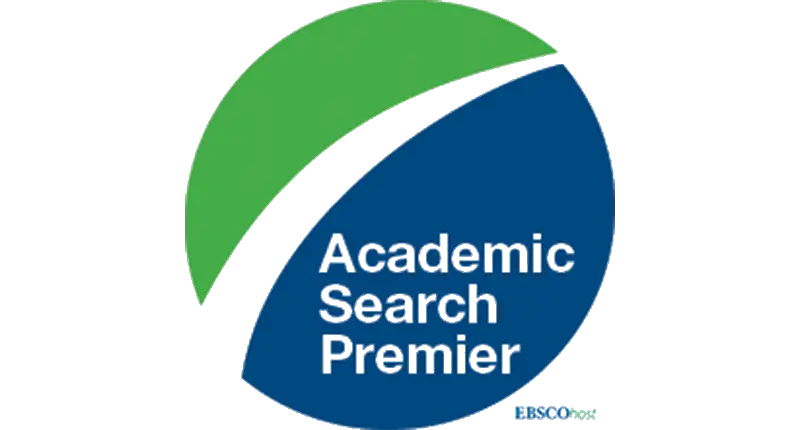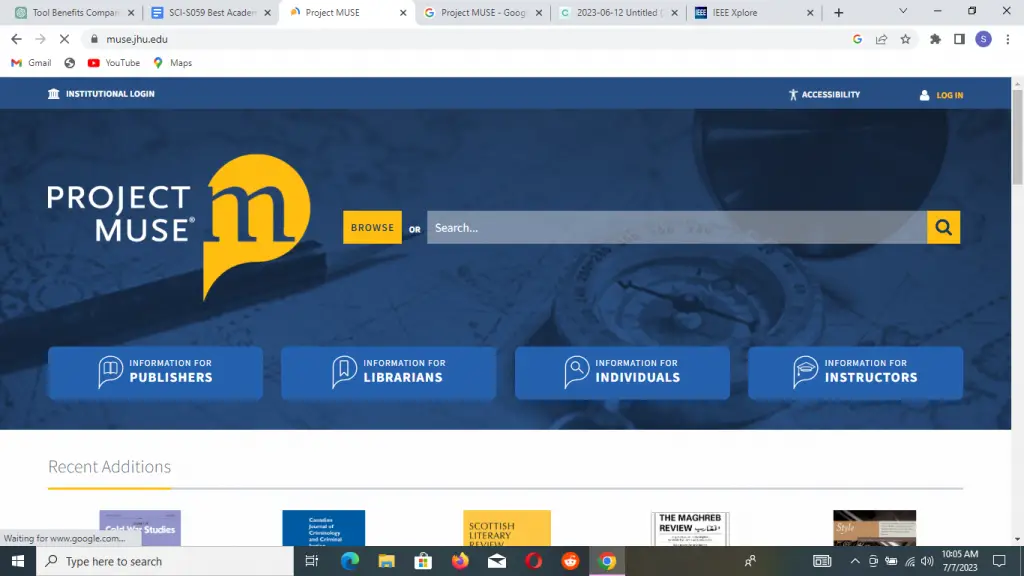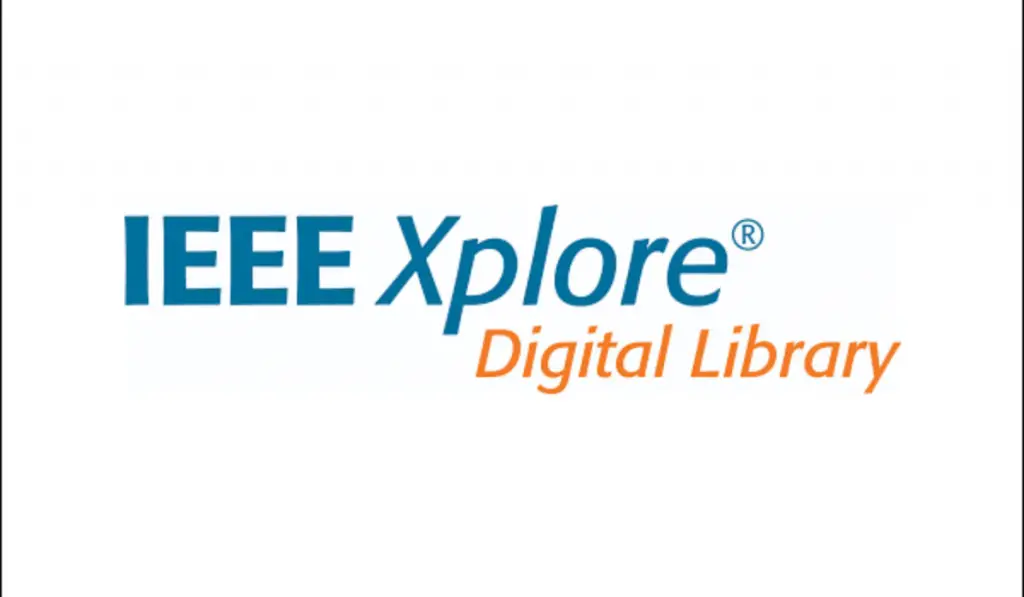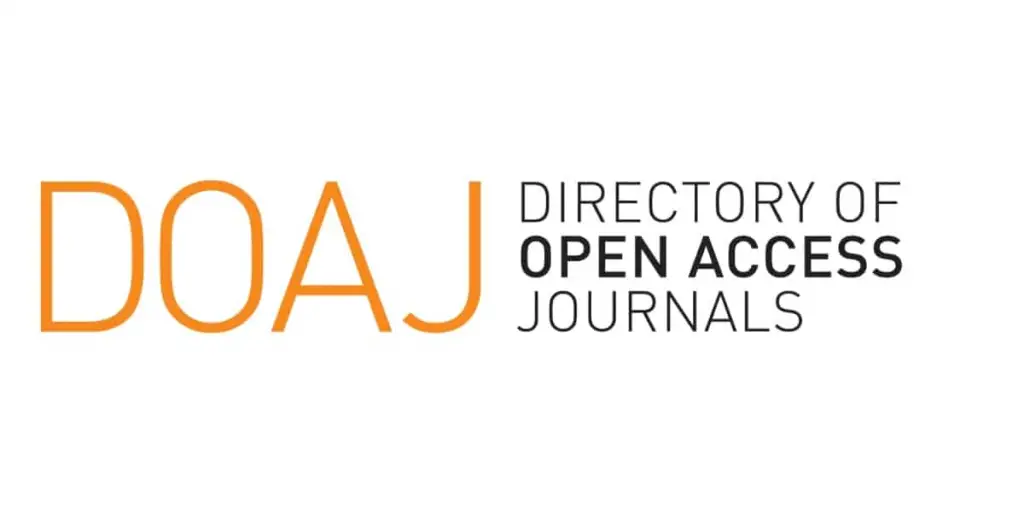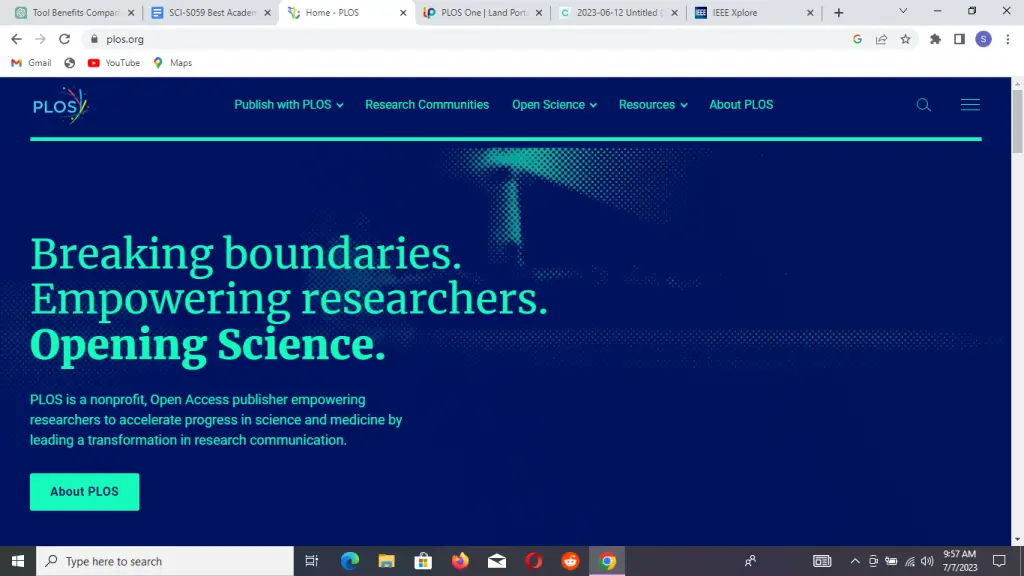Want to enhance your academic research? Learn about the best academic journal discovery platforms to empower your academic pursuits.
Academic journals represent the pulse of scholarly discourse, sparking insights across a myriad of fields. Yet, the challenge lies in navigating this vast universe, where scholarly pursuits can sometimes become a relentless quest in a maze of unvetted content.
Here is where academic journals take center stage. These tools are transforming scholarly research, serving as reliable allies that guide researchers to relevant, high-quality, and peer-reviewed materials.
Table of Contents
Overview
Academic journal discovery platforms are designed to streamline your academic research, acting as powerful search engines for scholarly literature.
They offer benefits such as quality controlled content, ease of access, in-depth searching capabilities, and discipline-specific research databases.
These platforms are both a lighthouse and compass, illuminating and guiding your academic journey. Let’s delve into 15 best academic journal discovery platforms.
Best Academic Journal Discovery Platforms
Please be aware that the pricing for the journal discovery platforms discussed in this post varies widely: some offer free previews with full access available for a fee, while others operate on a subscription basis.
#1. Google Scholar – Best for Comprehensive, Cross-Disciplinary Searches
Summary
- Expansive database spanning all academic disciplines
- Comprehensive search functionality
- Links to full-text versions of papers where available
Nestled within the vast sphere of Google, Google Scholar epitomizes an organized, approachable hub of scholarly literature. It operates like a guiding star for academic navigators, crossing disciplinary lines with its robust database.
What are the benefits of Google Scholar?
- Cross-Language Search: Google Scholar supports multiple languages, enhancing the scope of research by providing academic resources in various languages.
- User Accessibility: This tool is free to use and does not require a subscription, making scholarly work accessible to a wider audience.
- Integrated with Google Drive: Google Scholar is integrated with Google Drive, allowing for seamless saving and organization of research material.
When it comes to all-in-one solutions for academic literature, Google Scholar takes the crown. Its breadth and depth of resources are truly unparalleled.
Source: https://scholar.google.com/
#2. PubMed – Best for Biomedical Literature
Summary
- Exclusive focus on biomedical literature
- Links to full-text articles and other related resources
- Regularly updated with recent research
In the realm of biomedical literature, PubMed stands as an undisputed authority. Created by the National Center for Biotechnology Information (NCBI), it provides an indispensable conduit for professionals and researchers to stay abreast with evolving life sciences.
What are the benefits of PubMed?
- Biomedical Literature: PubMed is an excellent source for life science and biomedical literature, covering a broad range of medical subjects.
- Clinical Guidelines: It includes clinical guidelines, making it useful for healthcare professionals and students.
- Free to Use: The majority of the content is freely accessible, making it cost-effective for researchers.
Navigating the complex world of biomedical literature is a breeze with PubMed.
Source: https://pubmed.ncbi.nlm.nih.gov/
#3. Web of Science – Best for Citation and Impact Factor Analysis
Summary
- Comprehensive citation data
- Extensive database of high-quality research publications
- Impact factor analysis for journals and articles
Picture an immensely organized library – that’s Web of Science for you. Brought to life by Clarivate Analytics, it provides an intricate web of citation data, allowing researchers to assess the influence and reach of academic articles meticulously.
What are the benefits of Web of Science?
- Citation Analysis: Web of Science offers comprehensive citation and impact factor analysis, supporting bibliometrics studies.
- Interdisciplinary Coverage: It provides extensive coverage across various disciplines for a thorough research experience.
- Author Information: The tool also provides detailed author information for better insight into specific research fields.
If you’re seeking a scholarly platform that gives you a broad perspective through citation analysis and impact factors, Web of Science is your go-to tool.
Source: https://clarivate.com/
#4. JSTOR – Best for Historical Journals in Humanities
Summary
- Wide range of historical journals in humanities
- Archive of millions of academic articles
- Full-text access to resources
If academic databases had an old soul, it would undoubtedly be JSTOR. This digital library, an amalgamation of academic journals, books, and primary sources, shines in its collection of historical journals in humanities, ensuring the past stays within scholars’ grasp.
What are the benefits of JSTOR?
- Historical Journals: JSTOR excels in offering historical and archived journals, especially in the humanities.
- Primary Sources: This tool includes a rich collection of primary sources for comprehensive research.
- Readability: It provides high-quality scanned images and a user-friendly interface for easy reading and navigation.
When it comes to historical journals in the humanities, JSTOR stands unrivaled with its rich, deep, and full-text accessible archive.
Source: https://www.jstor.org/
#5. ScienceDirect – Best for Accessing Full-Text Scientific Content
Summary
- Full-text access to numerous scientific, technical, and medical research papers
- Robust search engine for precise results
- Regularly updated database
ScienceDirect is the loyal comrade with all the answers. This Elsevier database, one of the leading full-text scientific databases, generously offers articles and book chapters from thousands of peer-reviewed journals and books, making it a treasure trove for scientific researchers.
What are the benefits of ScienceDirect?
- Full-Text Content: ScienceDirect provides access to a large volume of full-text scientific, technical, and medical research.
- High-Quality Journals: It is known for its high-quality peer-reviewed journals from globally recognized publishers.
- Advanced Search Features: This tool also offers advanced search capabilities, including image, data, and text mining.
For unlocking the door to the universe of full-text scientific content, there’s no better key than ScienceDirect.
Source: https://www.sciencedirect.com/
#6. Academic Search Premier (EBSCO) – Best for Undergraduate Research
Summary
- Multidisciplinary database with a wide range of topics
- Scholarly, full-text journals, and popular magazine content
- Reliable, peer-reviewed, full-text information
Think of Academic Search Premier as the ideal mentor every undergraduate student wishes for.
Developed by EBSCO, this multi-disciplinary database boasts an impressive collection of full-text journals, making it a stepping-stone for undergraduates embarking on their research journey.
What are the benefits of Academic Search Premier?
- Undergraduate Research: Academic Search Premier is ideal for undergraduate research with a robust multidisciplinary collection.
- Full-Text Access: Offers full text for many peer-reviewed journals and other academic sources.
- User-Friendly Interface: It provides an intuitive, easy-to-use interface that supports advanced research techniques.
For undergraduate research, Academic Search Premier is an invaluable resource, offering access to a broad, multidisciplinary range of trusted content.
Source: https://www.ebsco.com
#7. Scopus – Best for Bibliographic Information in Science and Technology
Summary
- Comprehensive bibliographic database covering a wide array of subjects
- Tools for tracking, analyzing, and visualizing research
- Regularly updated content
Scopus, another marvel from Elsevier, serves as a precision compass guiding users through the complex territory of scientific and technological literature.
With its broad abstract and citation database, it offers an excellent suite of tools for researchers to track, analyze, and visualize their work.
What are the benefits of Scopus?
- Bibliographic Information: Scopus excels in providing extensive bibliographic information in science, technology, and more.
- Citation Analysis: The tool offers comprehensive citation analysis for tracking research impact and trends.
- Author Profiles: Its detailed author profiles facilitate collaboration and researcher discovery.
If you’re seeking a platform that offers comprehensive bibliographic information and robust research tools, Scopus stands out as a clear leader in the field.
Source: https://www.scopus.com/
#8. SpringerLink – Best for Protocols and Methods in Life Sciences
Summary
- A vast collection of protocols and methods in life sciences
- Access to eBooks, journal articles, and reference works
- High-quality, peer-reviewed content
SpringerLink, a product of Springer Nature, stands as a colossal library housing detailed protocols and methods in life sciences. The platform is a treasure chest of resources that offers everything from journals and books to databases.
What are the benefits of SpringerLink?
- Life Sciences Protocols: SpringerLink is known for providing protocols and methods in life sciences, including a vast collection of e-books.
- High-Quality Content: It offers high-quality, peer-reviewed journals in various disciplines.
- Advanced Search Features: SpringerLink allows users to refine their search through a range of parameters.
For anyone exploring the vast realm of life sciences, SpringerLink acts as an invaluable guide, offering a wealth of reliable, high-quality information.
Source: https://link.springer.com/
#9. Elsevier – Best for Extensive Scientific, Technical, and Medical Research
Summary
- Wide-ranging collection of journals and books
- Advanced search capabilities
- Access to cutting-edge research across various disciplines
Imagine a juggernaut in the world of academic journals—that’s Elsevier.
Boasting a massive array of resources, it’s the go-to hub for academics and professionals seeking scientific, technical, and medical research. Its cutting-edge search capabilities and high-quality content have made it a top choice among academics.
What are the benefits of Elsevier?
- Extensive Research: Elsevier is well-regarded for extensive scientific, technical, and medical research, offering vast databases for these fields.
- E-Books and Journals: The tool provides a large number of e-books and journals, many of which are peer-reviewed.
- Interactive Elements: It also features interactive elements like multimedia files to enhance comprehension and engagement.
If you’re seeking an extensive and current resource for scientific, technical, and medical research, Elsevier stands as a titan in the field.
Source: https://en.wikipedia.org/
#10. Project MUSE – Best for Social Science and Humanities Content
Summary
- Comprehensive collection of humanities and social science content
- Peer-reviewed academic journals and eBooks
- High-quality, relevant content
Project MUSE emerges as an oasis in the academic desert, offering a respite for scholars seeking high-quality humanities and social sciences content.
Born out of a collaboration between libraries and publishers, it is a reliable provider of top-notch content for the scholarly community globally.
What are the benefits of Project MUSE?
- Humanities and Social Sciences: Project MUSE offers high-quality books and journals in the humanities and social sciences.
- Peer-Reviewed Content: Content includes a number of peer-reviewed academic journals and scholarly books. This provides you with a large number of resources that are relevant and of high quality.
- Access to Current Content: It provides access to current content from a range of notable publishers.
For comprehensive and reliable resources in the humanities and social sciences, Project MUSE offers a wealth of peer-reviewed content to enrich your studies.
Source: https://muse.jhu.edu/
#11. IEEE Xplore – Best for Electrical Engineering and Computer Science Research
Summary
- An extensive range of technical literature in electrical engineering, computer science, and electronics
- High-quality, peer-reviewed content
- Cutting-edge research and technology
IEEE Xplore stands as a sanctuary for researchers in the fields of electrical engineering and computer science.
Engineered by the Institute of Electrical and Electronics Engineers (IEEE), it provides a passageway to high-quality technical literature, making it a beacon of knowledge in its domain.
What are the benefits of IEEE Xplore?
- Engineering and Computer Science Research: IEEE Xplore is an excellent tool for electrical engineering and computer science research.
- Standards Access: It provides access to technical standards in various related fields.
- High-Quality Publications: This database offers access to a wide range of publications, including journals, conferences and standards.
When it comes to electrical engineering and computer science research, IEEE Xplore leads the charge with its high-quality, innovative content.
Source: https://ieeexplore.ieee.org/
#12. SSRN – Best for Early Access to Social Science Research
Summary
- Early-stage research across a variety of disciplines
- Opportunity for scholars to share their work early on
- Access to a multitude of disciplines and research areas
With SSRN or Social Science Research Network, scholars get the worm by gaining early access to research in the social sciences and humanities.
The platform fosters a culture of peer feedback and rapid dissemination of scholarly work, often before official publication.
What are the benefits of SSRN?
- Early Access to Research: SSRN provides early access to social science research, with an emphasis on rapid dissemination.
- Multidisciplinary: It hosts content from a wide array of disciplines, fostering cross-disciplinary collaboration.
- Open Access: SSRN is an open-access platform allowing users free access to its content.
If you’re interested in staying ahead and getting early access to social science research, SSRN is your go-to platform.
Source: https://www.ssrn.com/
#13. DOAJ – Best for Discovery of Open Access Journals
Summary
- Directory of open access journals across various disciplines
- High-quality, peer-reviewed content
- Free access to all content
DOAJ, or Directory of Open Access Journals, is the lighthouse guiding scholars towards free, quality academic content.
This online directory offers access to high-quality, peer-reviewed journals from a wide range of disciplines, all of which are freely available to read and download.
What are the benefits of DOAJ?
- Open Access Journals: DOAJ is ideal for discovering open access journals across various disciplines.
- Quality Control: All the listed journals go through a strict quality control for ensured credibility.
- Multilingual Content: DOAJ includes content in multiple languages, expanding its reach and utility.
For anyone seeking a platform that combines free access with quality content, DOAJ stands as a beacon of open access.
Source: https://doaj.org/
#14. PLOS – Best for Open Access in Science and Medicine
Summary
- Focus on science and medicine disciplines
- Free access to all content
- High-quality, peer-reviewed content
PLOS, the Public Library of Science, is the altruistic contributor in the academic world. This non-profit open access publisher redefines scientific research accessibility, inviting researchers to free, quality content in science and medicine.
What are the benefits of PLOS?
- Open Access in Science and Medicine: PLOS is known for providing open access to scientific and medical research.
- Peer-Reviewed Content: It hosts high-quality, peer-reviewed content from numerous fields.
- Rapid Publication: PLOS focuses on rapid publication, accelerating the sharing of research.
If you’re looking for a resource that offers free access to high-quality, peer-reviewed content in science and medicine, PLOS is your ideal platform.
Source: https://plos.org/
#15. BioMed Central – Best for Open Access in Biology and Clinical Medicine
Summary
- Comprehensive platform dedicated to biology and clinical medicine
- Open access to all content
- High-quality, peer-reviewed content
BioMed Central, an integral part of Springer Nature, illuminates the academic world with open access in biology and clinical medicine.
By championing free dissemination of research, it grants researchers a platform to share their findings, catalyzing advancements in scientific and medical research.
What are the benefits of BioMed Central?
- Open Access in Biology and Clinical Medicine: BioMed Central provides open access to research in biology and clinical medicine.
- Peer-Reviewed Journals: It offers a broad spectrum of peer-reviewed journals in various sub-disciplines.
- High Impact Factor: Many of its journals have high impact factors, indicating influential research.
When it comes to open access resources in biology and clinical medicine, BioMed Central is a leading figure with its high-quality, peer-reviewed content.
Source: https://www.biomedcentral.com/
Conclusion
The wealth of academic journal discovery platforms empowers scholars and researchers, propelling them into new heights of knowledge exploration.
Google Scholar stands out with its vast cross-disciplinary resources, while specialized tools such as PubMed and IEEE Xplore shine in their respective fields.
Regardless of your academic stage, whether a budding undergraduate researcher or seasoned scientist, these platforms ensure that you can easily access the world’s wealth of knowledge.


